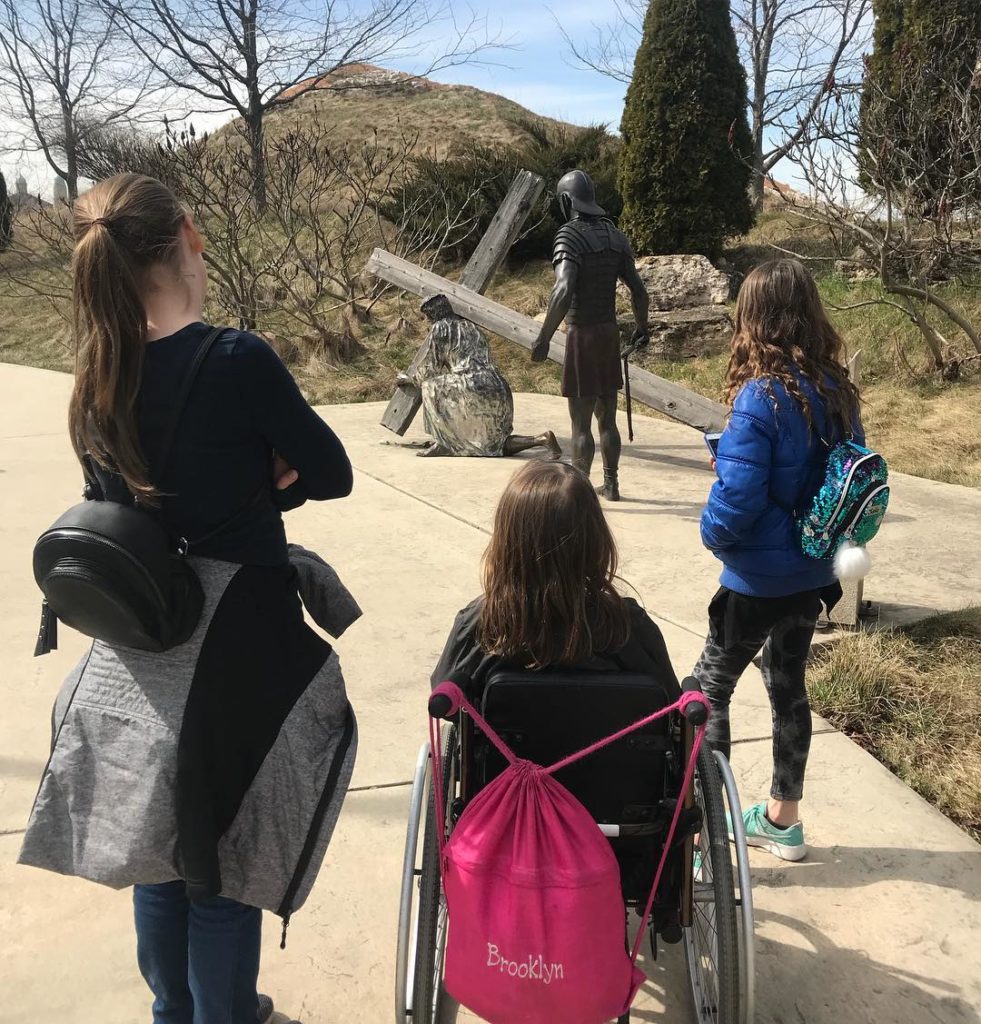As I sit here and think about Easter, my mind and heart want to think about hope and light and empty tombs and glory—all the best parts of the Easter story. Jesus being raised from the dead isn’t just good news. It is the best news. Add a few chocolate peanut butter eggs to it all and, well, it just doesn’t get any better.
But then there’s the rest of the story. The days leading up to it. Days that involved betrayal and injustice; hatred and anguish; suffering and darkness. And blood… so much blood. That part catches me a little. Singing hymns of praise that celebrate blood feels a little weird, doesn’t it? No one wants to think about blood, let alone sing in church about it.
Why is that? Why do we run away from the hard parts of the story? Why does our human nature want us to skip over the gore and blood, the ugly shadows of pain and death? I suspect it’s the same reason we often numb ourselves from our own pain and suffering. It’s why strong coffee and red wine and crap TV and online shopping become our go-to agents of joy. They make us forget the betrayals, the injustice, the pain, the secret shadows of shame and darkness that linger in the hidden places of our hearts.
We don’t usually want to admit it out loud, but I think many of us identify more with the suffering of Jesus than His victory. We see ourselves in the beaten-up man, mocked and shamed, the world lugging Him down a bumpy road while everything and everyone else around Him goes on like nothing is glaringly wrong. It’s infuriating, really, how unfair life can be and how unaffected other people can be by it. We all ignore suffering… His suffering, our suffering, their suffering. It’s just too hard and exhausting to think about.
Instead, we add sugar and shots of espresso and same-day delivery so that life feels easier, the waiting is shorter, and joy comes faster. We skip past the hurt and dress it up in breakfast casseroles and coordinating outfits and white baskets overflowing with candy.
But here’s the thing that Holy Week teaches us if we lean in close enough to see it in its entirety: The hard parts might actually be the most important and hopeful parts of the story. The pain and suffering show us that God isn’t absent or irrelevant or oblivious to our hurt. He isn’t a far-off, judgmental light in the sky who stands by like something isn’t glaringly wrong. He is a come-to-earth, dragged-through-the-dirt, dripping-in-sweat-and-death kind of Savior that crawled the road to victory in utter agony.
That part we want to skip? That part about the blood? It’s the part that reminds us that He knows our pain and sees our pain and has been through our pain and is willing to come alongside us and carry us through it. He chose to experience it so that you and I would never have to experience it alone.
What would happen if we paused long enough to notice the hard parts of the story—His suffering, our suffering, their suffering? What if we stopped pretending like nothing is glaringly wrong and started to see the pain for what it is and then decided to face it dead on, trusting that God can turn ugly things like betrayal and wounds into new life? What if we came alongside others who are hurting, offering pieces of ourselves so that they wouldn’t have to go at it alone?
What if we looked more like Jesus on those days leading up to the tomb, suffering and trusting and carrying His pain, our pain, their pain so we can all experience victory together? Maybe that’s the part we should be focusing on after all.
Why is there pain at all? I don’t know the answer to that. I just know that suffering is part of everyone’s story, even God’s story. I also know that the hardest parts of the Easter story show us something about the hardest parts of our story: The blood and the pain are not the end, but we also can’t ignore them if we want to experience the fullness of the victory.
Easter shows us that beautiful things like empathy and compassion are often born out of grief and loss. It shows us that new life doesn’t come without bloodshed, and that victory rarely comes without the threat of defeat. We may bear scars and battle wounds, but ignoring them won’t make them go away. Dressing them up and hiding them at home or in church was never God’s plan.
He sees the hurt and the pain. He knows all about our suffering, their suffering. He’s walked the hard road, and He knows the way to victory. He paved the way to victory. We just need to be willing to follow Him there.

“And the God of all grace, who called you to his eternal glory in Christ, after you have suffered a little while, will himself restore you and make you strong, firm and steadfast.”
1 Peter 5:10
“And being found in appearance as a man, he humbled himself by becoming obedient to death– even death on a cross!”
Philippians 2:8
“For God so loved the world that he gave his one and only Son, that whoever believes in him shall not perish but have eternal life.”
John 3:16